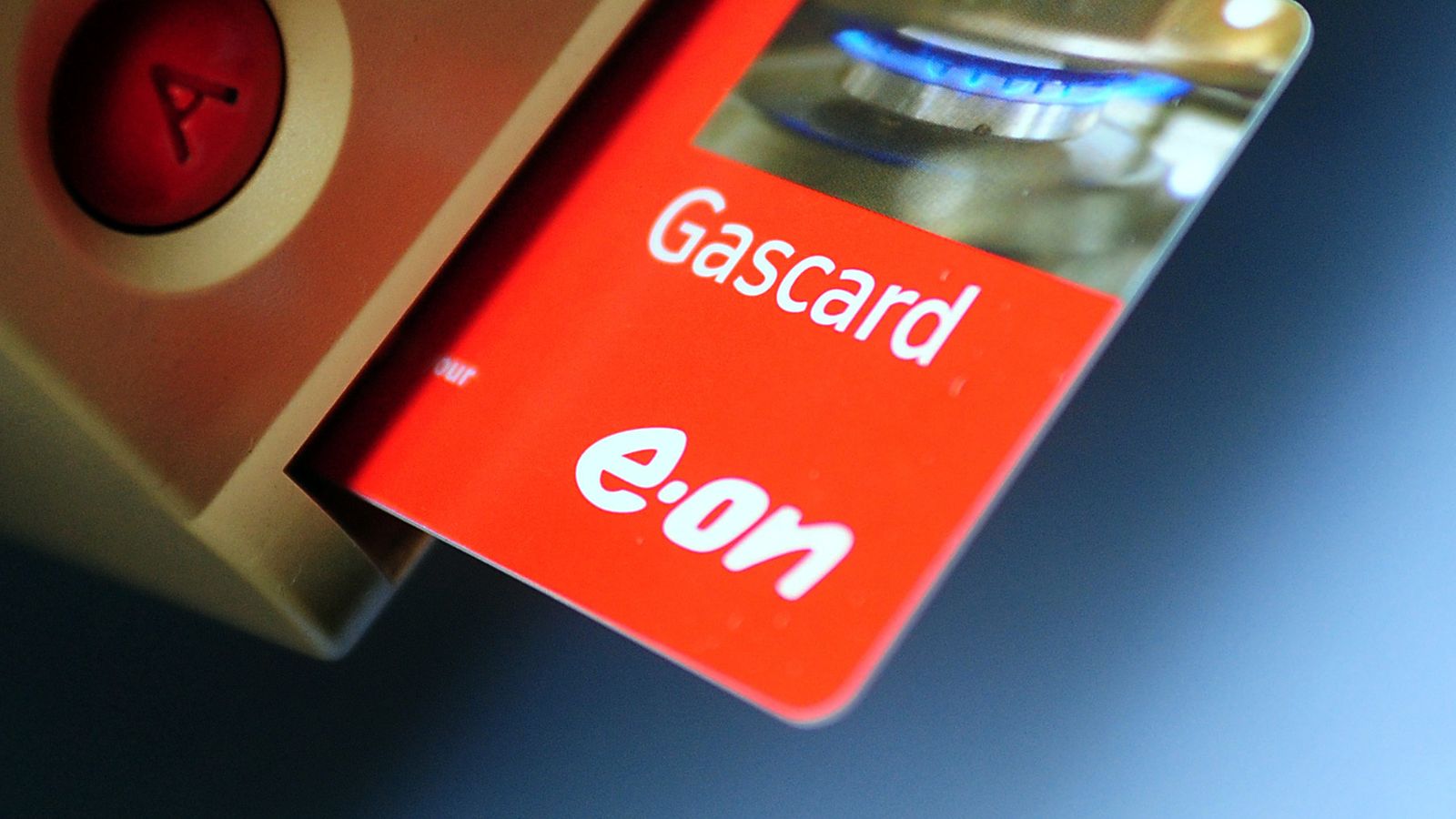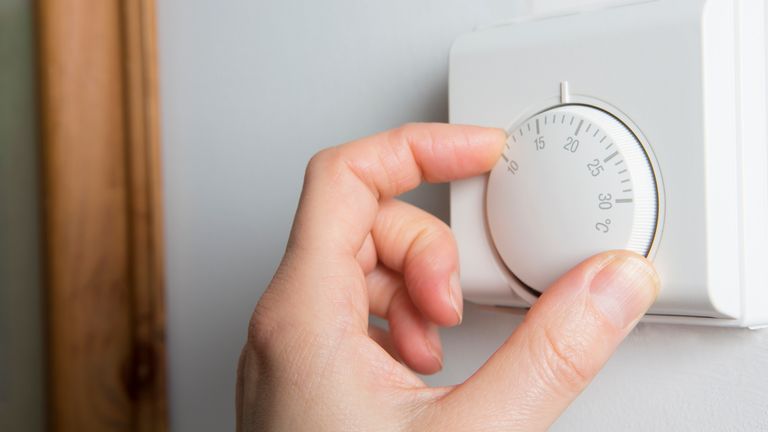Too many people are on pay-as-you-go energy meters that risk them being cut off paying more, Ofgem, charities and the government have said.
The regulator has said it will take legal action against any supplier that forces customers onto a prepayment meter and the government is issuing firms with a “cease and desist” order.
It comes as courts are overwhelmed with warrant requests from suppliers – despite rules in place to stop forced switches.
How do prepayment meters work?
Prepayment meters are pay-as-you go gas and electricity meters. They can be topped up online or with a card at certain shops and post offices.
About four million UK households have them.
They are mostly used by people who are struggling financially – as they allow you to pay for small amounts at a time.
But this means that when the money runs out, your electricity and heating switch off. Three million people ran out of credit on their prepaid meter last year, according to Citizens Advice.
When someone is unable to pay their energy bills and has fallen behind on them significantly, energy providers seek to switch them onto a prepaid meter – so they stop getting access to energy they haven’t paid for.
According to Ofgem, this is being done by several firms without customers’ knowledge.
What are the risks?
The households on prepayment meters in the UK largely fall into these groups:
- People living in social housing
- People who have moved into a property where the previous tenants had issues with their bills
- People who have had issues with credit or their bills themselves
“People on prepayment meters are usually people who are financially vulnerable,” Erik Porter, head of financial wellbeing at Wagestream, tells Sky News.
Prepayment meters are charged at different rates to pay-monthly tariffs – and traditionally have been far more expensive.
This is still the case in some circumstances, but the energy crisis has changed things.
“With the increase in energy prices and the government’s energy price guarantee, we’re all largely paying the same, very high price for energy,” Mr Porter says.
Read more from Sky News:
Tonight people will be paid to turn off their appliances – here’s why
How can I earn £100 off my energy bills?
Record numbers of Britons on benefits
He adds: “If your meter runs out at 3am and you don’t live in a city where shops stay open all night, you’re going to struggle to top up. At the moment you’re also going to be doing that in -5C.
“You’re also expecting to people have cash in their pockets when they need it.
“If you need to top up on Monday but don’t get paid until Tuesday, you’re going to have to use credit or an overdraft, which with high interest rates will keep you trapped in that downward spiral.”
Citizens’ Advice, End Fuel Poverty and the Labour Party are calling for a total ban on force-fitting prepayment meters when bills aren’t paid to put barriers between people and disconnection.
But this would mean more bailiffs getting involved in cases – instead of resolving debt by prepaid meter or a payment plan – which the government wants to avoid.
What are the rules around them?
If someone hasn’t paid their energy bills, their supplier has several ways to get them to repay the debt.
One of these is by installing a prepayment meter.
According to Ofgem, getting a court warrant to force-fit a prepayment meter should be a “last resort” after “all reasonable steps have been taken to agree payment”.
Customers who become subject to a warrant are charged £150 for the process and then have to repay their debt when they next top up – or some of that debt via a payment plan.
Energy companies can’t force prepayment meters on very vulnerable people – and many of them have vulnerability pledges to protect people with young children and those unable to safeguard their welfare as a result of age, health, a disability or severe financial insecurity. The pledges are not legally binding, however.
You also can’t be disconnected over winter (1 October to 31 March) if you are of pension age, disabled or chronically ill.
What is the government saying?
Business and Energy Secretary Grant Shapps has written to energy suppliers with a cease-and-desist order on force-fitting prepayment meters.
He has also demanded data on the number of warrants requested to “name and shame” the worst offenders.
“Suppliers are clearly jumping the gun and moving at-risk customers onto prepayment meters before offering them the support they are entitled to – I simply cannot believe that every possible alternative has been exhausted in all these cases,” he said.
“Rather than immediately reaching for a new way to extract money out of customers, I want suppliers to stop this practice and lend a more sympathetic ear, offering the kind of forbearance and support that a vulnerable customer struggling to pay should be able to expect.”
Click to subscribe to the Sky News Daily wherever you get your podcasts
Jonathan Brearley, the chief executive of Ofgem, said that after reviews of practices in 2022, “we will take forward a further a more detailed assessment to check whether plans have led to improvements.
“This review will focus specifically on self-disconnections, remote switching and forced installations, and the checks and balances companies have around any decision to put a customer on a pre-payment meter.
“If we find that they have not taken due care in this process, we will take further legal action against them.”

